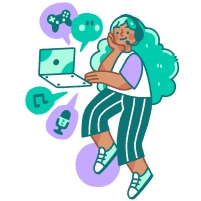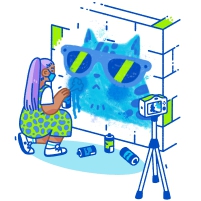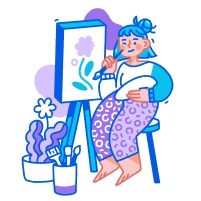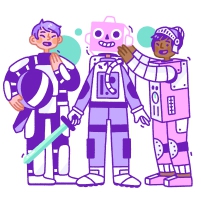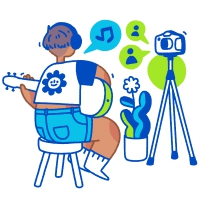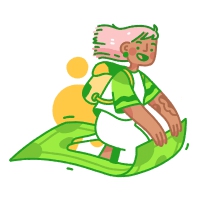
Learn.
Create.
Thrive.
Get to Know Twitch
This is where we'll cover the basics from setting up your channel page to some do's and don'ts straight from successful Partners.
-
1.Twitch Etiquette2 minutes
-
2.Assembling a Support Squad3 minutes
-
3.Policies, Guidelines, and Terms1 minutes

Complete this path to unlock a digital pin!
To unlock this path you still need to complete the quiz
Going Live
We have simplified the process of going live on Twitch, no matter how you stream.
-
1.Stream on PC1 minutes
-
2.Stream on Mobile IRL1 minutes
-
3.Stream Mobile Gaming1 minutes
-
4.Stream on Playstation1 minutes
-
5.Stream on Xbox1 minutes
-
6.Setting Up Your Stream2 minutes
-
7.What You Need to Stream2 minutes

Complete this path to unlock a digital pin!
To unlock this path you still need to complete the quiz
Establish Your Brand
This is where we’ll cover the basics of what to think about when building a brand.
-
1.Personal Branding3 minutes
-
2.Engaging Viewers4 minutes
-
3.Social Media Strategy3 minutes
-
4.What Analytics Matter2 minutes
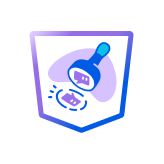
Complete this path to unlock a digital pin!
To unlock this path you still need to complete the quiz
Growing your Community
This is where we’ll cover the basics on how to start and grow a community on Twitch.
-
1.Building Connections3 minutes
-
2.Rewarding Viewers3 minutes
-
3.Twitch Alerts2 minutes
-
4.Event Planning2 minutes
-
5.Increasing Accessibility2 minutes

Complete this path to unlock a digital pin!
To unlock this path you still need to complete the quiz
Content Categories on Twitch
Whether you want to stream music, painting, gameplay, or outdoor hikes we will cover it here. Learn more about different content categories on Twitch and what makes them special!
-
1.Gaming4 minutes
-
2.IRL4 minutes
-
3.Just Chatting, ASMR, & Talk Shows4 minutes
-
4.Creative, Coding, & Co-working7 minutes
-
5.Co-Streams & Sidecasting4 minutes
-
6.Fitness & Health3 minutes
-
7.Food & Drink4 minutes
-
8.Music & DJs4 minutes
-
9.VTubing3 minutes
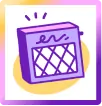
Complete this path to unlock a digital pin!
To unlock this path you still need to complete the quiz
Monetization
There are lots of tools to help you start making money on Twitch while building meaningful connections with your community.
-
1.Bits and Subscriptions4 minutes
-
2.Running Ads3 minutes
-
3.Sponsorships2 minutes
-
4.Monetization Moments3 minutes
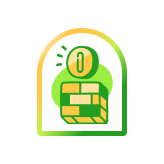
Complete this path to unlock a digital pin!
To unlock this path you still need to complete the quiz
Copyrights & Your Channel
Welcome to the Twitch Copyright School.
-
1.Copyright School: What do I need to know about copyright law?4 minutes
-
2.Copyright School: Why are copyright laws important for me to think about?6 minutes
-
3.Copyright School: What happens if you violate copyright law?6 minutes
-
4.Copyright School: Resources & Tools4 minutes
-
5.Copyright School: Quiz1 minutes
-
6.Understanding Copyright Law and the DMCA as a Twitch Streamer4 minutes
-
7.Resources and Tools to Help Streamers Build Good Habits3 minutes

Complete this path to unlock a digital pin!
To unlock this path you still need to complete the quiz
More Coming Soon
New updates are coming soon to Creator Camp!
Complete this path to unlock a digital pin!
To unlock this path you still need to complete the quiz

Complete this path to unlock a digital pin!

Complete this path to unlock a digital pin!

Complete this path to unlock a digital pin!

Complete this path to unlock a digital pin!

Complete this path to unlock a digital pin!

Complete this path to unlock a digital pin!

Complete this path to unlock a digital pin!
Complete this path to unlock a digital pin!
How do I start streaming on Twitch?
You'll need a solid foundation to start your streaming journey on Twitch and build your channel! Our article Get to Know Twitch is where we’ll cover all the basics, from streaming level, to Emotes, and how to stay safe, we've got it covered!
How do I grow my channel on Twitch?
Growing your channel on Twitch involves many factors, but we are here to help! You can start taking steps to Grow Your Community today. This path is where we’ll cover key all the basics, from rewarding viewers, to utilizing calls to action, and how to plan fun events.
How do I make money on Twitch?
To start monetizing your Twitch channel, you’ll first need to achieve Affiliate status. Our Monetization on Twitch article covers all the basics. Learn about utilizing Twitch tools like Subscriptions and Bits, as well as Ads and sponsorships to help you make money on Twitch!
